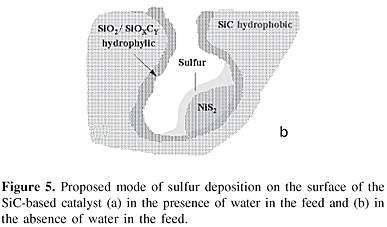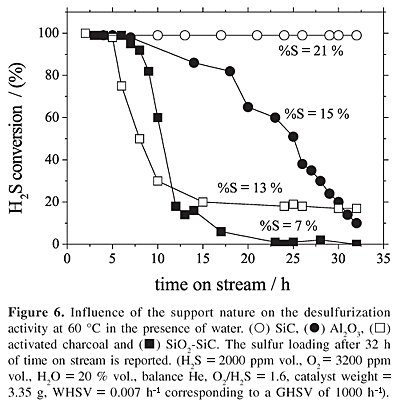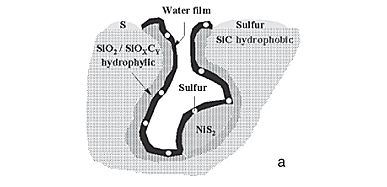The NiS2 and Fe2O3 active phases supported on medium surface area beta-silicon carbide (SiC) showed high activity, selectivity and stability in the direct oxidation of H2S into elemental sulfur. The catalysts were tested under a large range of temperatures, from room temperature using Ni (trickle-bed reactor) to over-dewpoint temperatures using Fe (fixed bed reactor). For both cases, the formation on stream of a Ni and Fe oxysulfide high active phase was proposed by oxidation of NiS2 and sulfidation of Fe2O3, respectively. The absence of microporosity in the support contributed to the high selectivity into sulfur. At low temperatures (below 100 ºC), the high stability of beta-SiC supported catalysts towards the solid sulfur loading was explained by a specific mode of sulfur deposition, involving the role of water in the feed and the heterogeneous nature of the SiC surface, being partly hydrophilic and hydrophobic.
silicon carbide; catalyst support; sulfur recovery; H2S oxidation; hydrophilicity; hydrophobicity











